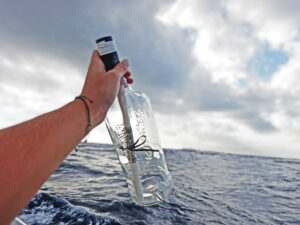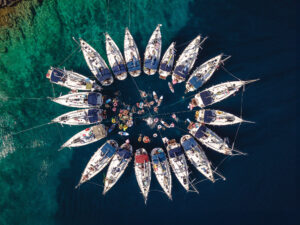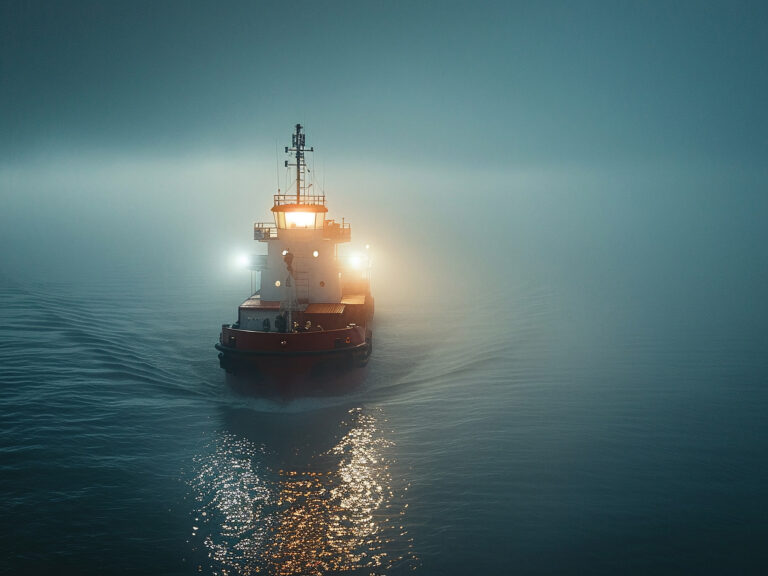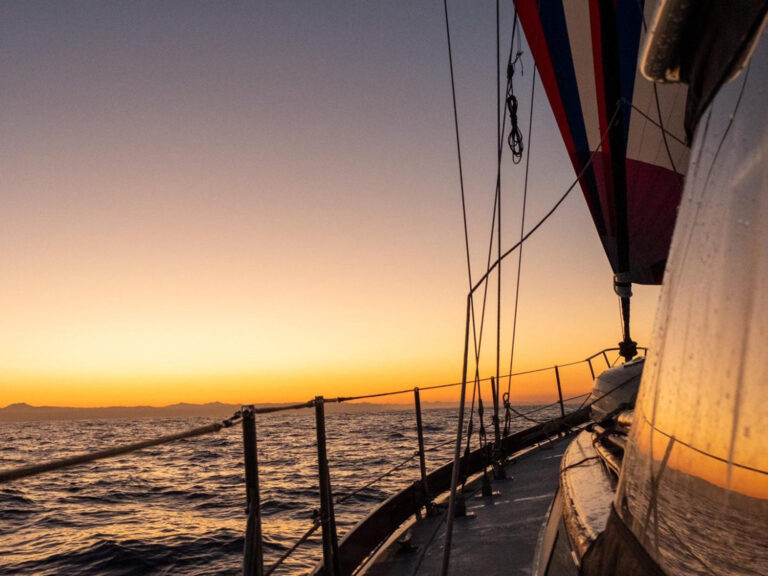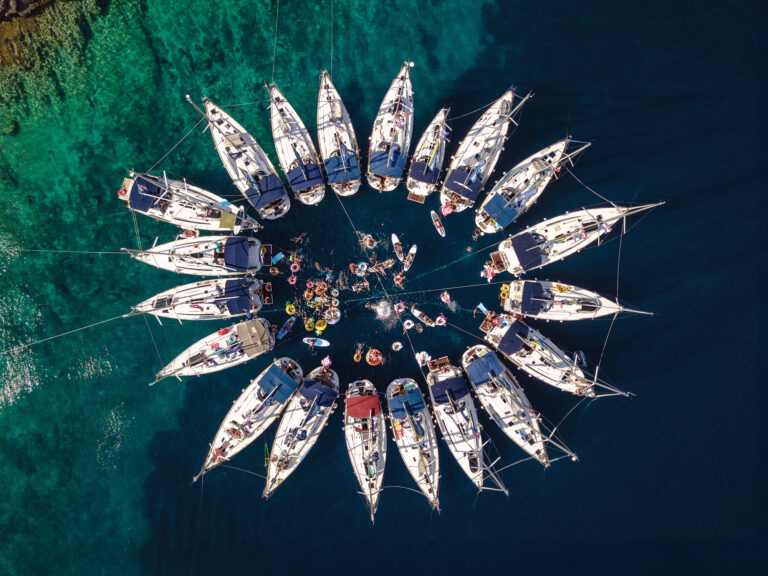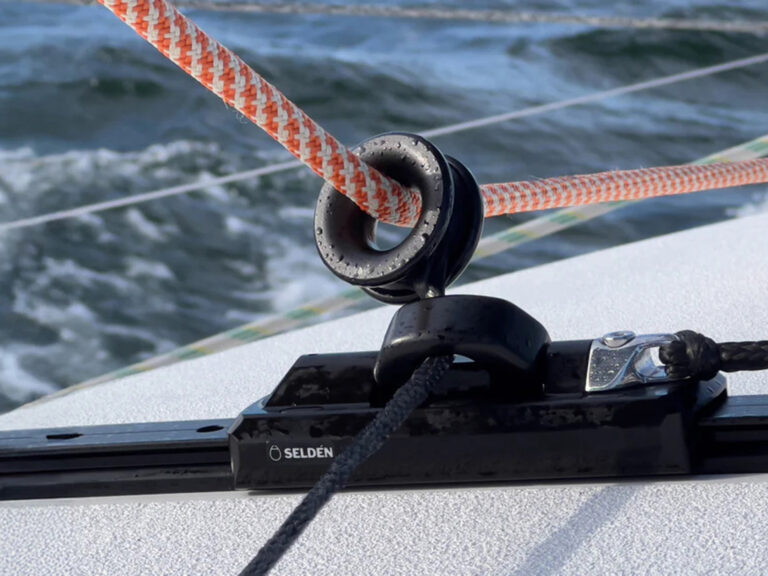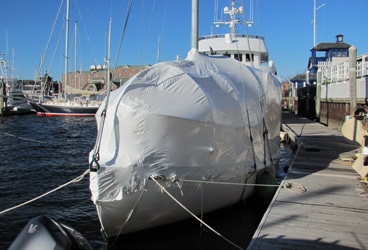
The worst thing for me about taking a break from cruising is having to find a job. Not the job itself, mind you—just the looking for one. It seems the most depressing thing on earth to fill out endless reams of applications, wondering, fearing, hoping the phone will ring and dreading it won’t. I expect it’s the same for all cruisers who are re-integrating. There’s always a sort of dazedness to coming back on shore, with the million things that need immediate attention. Address changes to cancel (“Ah, the notorious Zartmans!” said the man at the post office the first time we went in), marina paperwork to fill out, library cards to see to—the list goes on.
It helped a little, this time, that we were not arriving somewhere entirely new, but returning to familiar ground in Newport, RI, where we’d spent a whole year before sailing off to the Canadian Maritimes. The network of in situ acquaintances proved invaluable to settling in quicker, and, as is usual, to finding a job. Even in this age of LinkedIn and Monster and Craigslist, the best way to hook up with work is still to know someone who knows someone who’s hiring.
It was good, though, that it took a couple of weeks to get something steady. There was a lot of work to do to settle in: rigging and sails to send down and fold for the winter; ground tackle to rinse, dry and stow; a shrink-wrap canopy to build. It snowed the day we moved Ganymede to her proper winter slip, and I spent some very cold days doing temporary work at the boatyards. But before too long (ah, the leisure of the unemployed!) Ganymede was all snug for the winter, with canopy built and lots more room down below with all our overflow now stored on deck. Not that that helps for long, since it seems a rule that no matter how much room you have it can quickly get overtaken with clutter. Of course, the kids have had to live so long with no room for extra things, unable to accumulate treasures as freely as children like to, that now I think they’re accumulating extra, just because they can.
In the fulness of time, and perhaps just a little before, my vast network of friends and well-wishers paid off, and I was invited to work at Goetz Composites in Bristol. My task was to help finish a boat re-fit, and I spent a pleasant (if often chilly) four weeks installing lights and plumbing and other small things on an 80-foot carbon-fiber ex-raceboat. Before that project came to an end, a full-time project came along, also in Bristol (lots of boatbuilding going on in that town), making a prototype interior for a re-designed speedboat. Work starts early (6:30 AM!), but the building in which I get to spend my days making patterns out of MDF (a kind of glorified cardboard) is well heated, and life is inevitably settling into a pattern.
Now I’ll tell you the surprising part: contrary to most people’s idea of cruising, which is one of endless leisure under coconut trees with a fistful of cool beverage, this full-time job with a daily commute and seemingly endless errands is a lot less work than full-time cruising with the kids has ever been. Sure, there’s cruisers who do the shady relaxing thing, but they usually don’t have children, nor do their boats move very often. We’ve known cruisers whose only ambition is to lounge about in their underwear and browse the internet—you can do that with almost any Central American cellphone SIM card—and we find that completely acceptable. Cruising should be done at your speed and in your own style, whatever that may be. But our style is of necessity less relaxing—we have places to go and see, and the children don’t allow for leisurely lounging.

Cruising for us is more like in one of Masefield’s Bo’sun’s Yarns:
“Them’s the works o’ the Lord you sees in steam ‘n’ sailing ships,-
Rocks ‘n’ fogs ‘n’ shatterin’ seas ‘n’ breakers right ahead,
‘N’ work o’ nights ‘n’ work o’ days enough to strike you dead.”
For a couple with small children this is especially true, since arriving in port after a long, stormy multi-day does not mean you can collapse into bed and sleep to your heart’s content. Usually the first concern is to get a decent meal into the children, and tidy up the inevitable chaos belowdecks. Then however unrested you are, they’ve had far too much rest and are generally crawling up the bulkheads and bouncing off the deckhead, and so must be taken ashore at the first possible moment. Even a week in port, even tied up wharfside, translates to endless work, since usually there’s ship’s stores to round up, lessons to keep up with, and the nonstop cleaning that living in tiny spaces necessitates.
So we’re taking our leisure, now that we’ve become landlubbers again. There’s no heaving up the anchor pre-dawn, no all-night watches, no concern for the weather—we simply don’t care what it does, since it’s consequences are so slight when you’re not trying to go anywhere by sea. It’s nice to take a walk whenever we please, to do laundry at will, and to have all the running water we can use ready to hand. Still, in spite of all the benefits and leisure we’re enjoying, there’s a slight sense of regret—not that we’re not cruising just now, since winter cruising only happens in places we’ve no interest in, but that we’re not planning anything else. The overwhelming factor of landlubbing is it’s permanence—even folk who seem to flit from city to city and job to job spend several years in each place—and looking ahead to a long stretch of not going anywhere is the scariest thing we’ve encountered for years. I have no idea how we’ll adapt to shoreside life, or whether we’ll be able to stand it in the long run, but for now we’re finding it pretty restful. If it’ll last remains to be seen.


